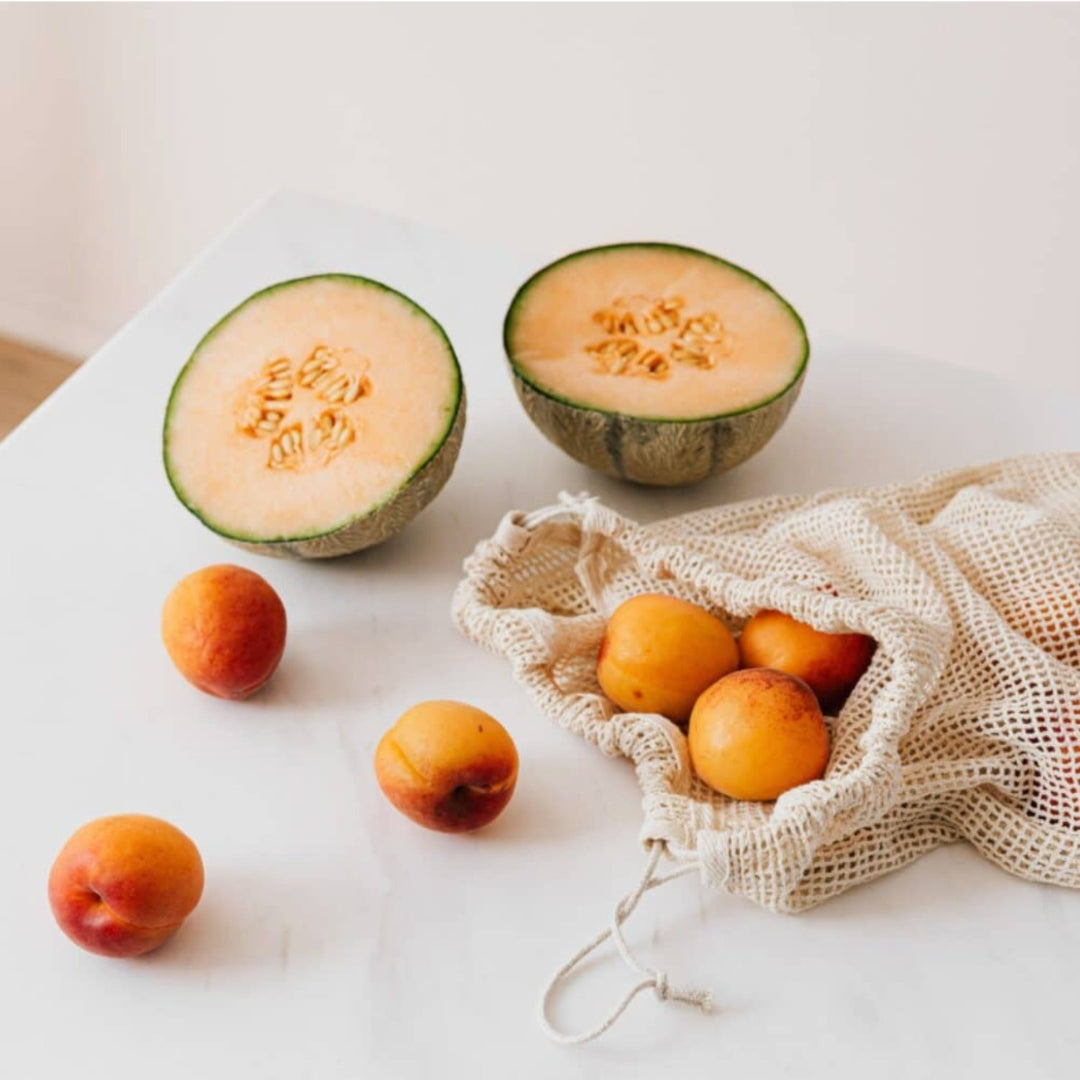When you give birth to a child, you also give birth to a new version of yourself.
Motherhood can be a profoundly beautiful and transformative experience. But it can also be a trying and anxiety-inducing adventure, especially when you're inundated with information on the Internet and heaps of unsolicited "you should..." advice.
How can we prepare for it? How can we experience pregnancy, birth, and the postnatal period with confidence and by listening to our intuition?
Mme L'Ovary welcomed Dominique Charbonneau –- yoga teacher, mother of 4 young children, and holistic doula – and Enira – lifelong motherhood enthusiast. They shared their intimate from-the-heart knowledge to inspire all moms and moms-to-be to experience motherhood more gently.
💡 This article is a summary of a Red Table organized by Mme L'Ovary. We leave the floor entirely to our invited experts and steadfast community. The following comments are opinions and should in no way be taken as medical recommendations.
*This text has been feminized to make it easier to read.
Pregnancy: How to prepare for childbirth?
Turning inward
Often, without even realizing it, we live outside ourselves. We tend to exist to please, to be seen, loved, and heard. The result? We’re sometimes at a loss to know what’s really good for us.
Preparing to give birth means relearning how to inhabit our bodies, slowing down and getting to know ourselves all over again. It means reconnecting with our intuition and learning to listen to it. You’ve got an oracle in there, you know – why not consult it?
Learning to inhabit your body requires a familiarity with introspection. It means breathing into your body, meditating, doing yoga, walking outside, writing… In short, it means cultivating a deep connection with yourself.
Of course, you can find a lot of helpful guides in the outside world; there’s a panoply of beautiful books on the market, women’s circles, and so on. It’s great to educate and inform yourself.
But it’s important we don't forget that most of the answers lie within. We already hold the keys. If we create space for what we already know, we’ll have an easier time making aligned choices.
N.B. Every pregnancy is different. And we’re all different too. We live in different contexts. The babies in our bellies aren’t the same. That’s why it’s essential to do this introspective work with every pregnancy (and in our lives in general!).
Prioritizing well-being
To prioritize your well-being during pregnancy, the key is slowing down. You’re growing a human being in your womb, and that’s no small feat! This creative process is very energetically demanding, so you have to be gentle with yourself. It's not only important, it's necessary (both for our well-being and for that of our baby).
I can already hear you saying: “How do we do that in a society that ranks us on the number of things we accomplish and demands that we be perfect in every area of our lives?” The first step is to stop feeling guilty about resting; rest is one of the most beautiful forms of love you can give yourself ❤️
Here are a few additional tools to support you:
Doula or therapist
Hypnosis
Mindful eating
Once again, we too often look outside ourselves for answers. The key is to reconnect with yourself. Through the various transformations that accompany pregnancy, the hormones that visit us, the waves of insomnia, and everything else that can be so challenging, it’s all about getting into these moments of contraction and intensity, all about getting to know ourselves as these challenges pass through us. Basically, it’s all about trusting that our body knows what’s good for it.
Building a village
To raise a child, you have to build a village around yourself.
You're not alone, and you don’t have to prove to anyone that you can do everything on your own. Pregnancy is the ideal time to find people you trust to surround yourself with, people who can support you now and after the birth as you begin your life as a new mother.
Delegate some tasks: ask your partner, friends, or family to do a little more.
Participate in women’s circles to forge a sisterhood.
Don’t be afraid to communicate your needs to those around you.
Food for thought: Western society has a tradition of organizing baby showers, which are often very focused on the baby’s needs, gifts, and consumption. But we often forget the great passage that women go through. How can we honour this passage in a meaningful way? It can take the form of a party to celebrate the mother-to-be, with the intention of making her feel seen and supported.
Giving birth: Inhabiting our power
Deconstructing our fears to learn to trust
We often hear very traumatic stories of childbirth. Whether it’s our mother telling us "You tore me apart when you were born," our grandmother telling us how it was the worst pain of her life, or our friend explaining the coldness of medical protocol, we’ve been immersed in these stories since we were young. No wonder we dread childbirth.
Of course, we’re not minimizing traumatic experiences. They exist, and they’re valid. But we have to relearn to trust the power of our bodies. And realize that there are 1,001 possible scenarios that reflect the needs and desires of every mother.
Learning to trust is a major deconstruction. The process begins by asking the right questions: What are my fears and resistances? Where do they come from? Where is the trust inside me?
Little secret (not so secret; we'd like to shout it from the rooftops!): Many births go very well! But we’re embarrassed to talk about them. We’re not supposed to like giving birth! And yet, it can be magnificent. You’re going to find the greatest power in yourself as a woman through this experience.
A great deal of mental work is needed to get rid of resistance. Here are a few phrases to repeat to yourself to create new neural pathways:
I’m capable. I’m strong.
I have this wisdom inside my body. It’s written in my DNA.
People incarnated in a female body are made to give birth. I’m capable too.
I’m the one giving birth, not the doctor.
I don’t own other people’s stories.
Understanding our bodies and cycles
Do we really know what happens physically and energetically in our bodies when we give birth? Unfortunately, many of us don’t.
This is one of the reasons we’re disconnected from our power. It’s essential to understand our cycles, our menstruations, the way our bodies work, to be able to inhabit our confidence and power.
Visualize
You can create a visualization chart to help you get closer to this reality. How would you like to experience childbirth? In a hospital, a birthing center, at home with a midwife, in the forest alone so you can embody your inner wild woman?
Remember, just because you’ve been through a difficult birth doesn’t mean you can’t experience a second (or third, or fourth) that’s more empowering.
N.B. Cesarean deliveries are just as powerful, beautiful, and valid. The mother opens up in a different way.
Surrender to the process
Many women tend to want to control everything (which is only human). This desire for control puts us in a position of ego. As Dominique told us about her first birth: “I wanted control over each of my contractions. I went through them with my ego more than just in ‘being.’”
Surrender to the process rather than trying to control it. I know: easier said than done! But it can be done.
Postnatal and baby blues: Tips for coping well during this period
Ever since you gave birth, have you felt like crying but don’t know why? Do you feel anxious? Don’t recognize yourself anymore?
Between 50% and 80% of new mothers experience the baby blues, a period of temporary depression in the days following birth. Let’s face it, the postnatal adjustment period isn’t all glitter and roses! You’re bound to be tired, with your hormones all over the place.
Don’t panic! The baby blues don’t usually last for long, just a few days to a couple weeks, and they can be soothed:
Surround yourself with the village you built during your pregnancy.
Nourish yourself with good food, good spirit, and good relationships.
Let your emotions and tears flow; they’re fleeting.
Remember that what you’re experiencing is great and valid.
Give yourself breaks and moments of respite, without guilt.
If this depression lasts more than 2 or 3 weeks, or if it’s more intense in the “I don't recognize myself at all anymore, and I can’t get back on top of the wave’ kind of way, you may be experiencing postpartum depression. If this is the case, consult a health professional.
Pssst! The postnatal period is always best experienced when you’re well equipped to deal with postpartum bleeding (known as lochia). Mme L'Ovary’s Postpartum Kit is specially designed to support you during this phase ♡
We hope this article serves as a mirror to your own power. You got this, Mama!
Some resources
More about Dominique: Instagram page, website.
Podcast MINDFUL Elle (contains free meditation sessions)
Studio Y (prenatal yoga and other)
Documentary Sages et Rebelles on ICI Tou.tv























